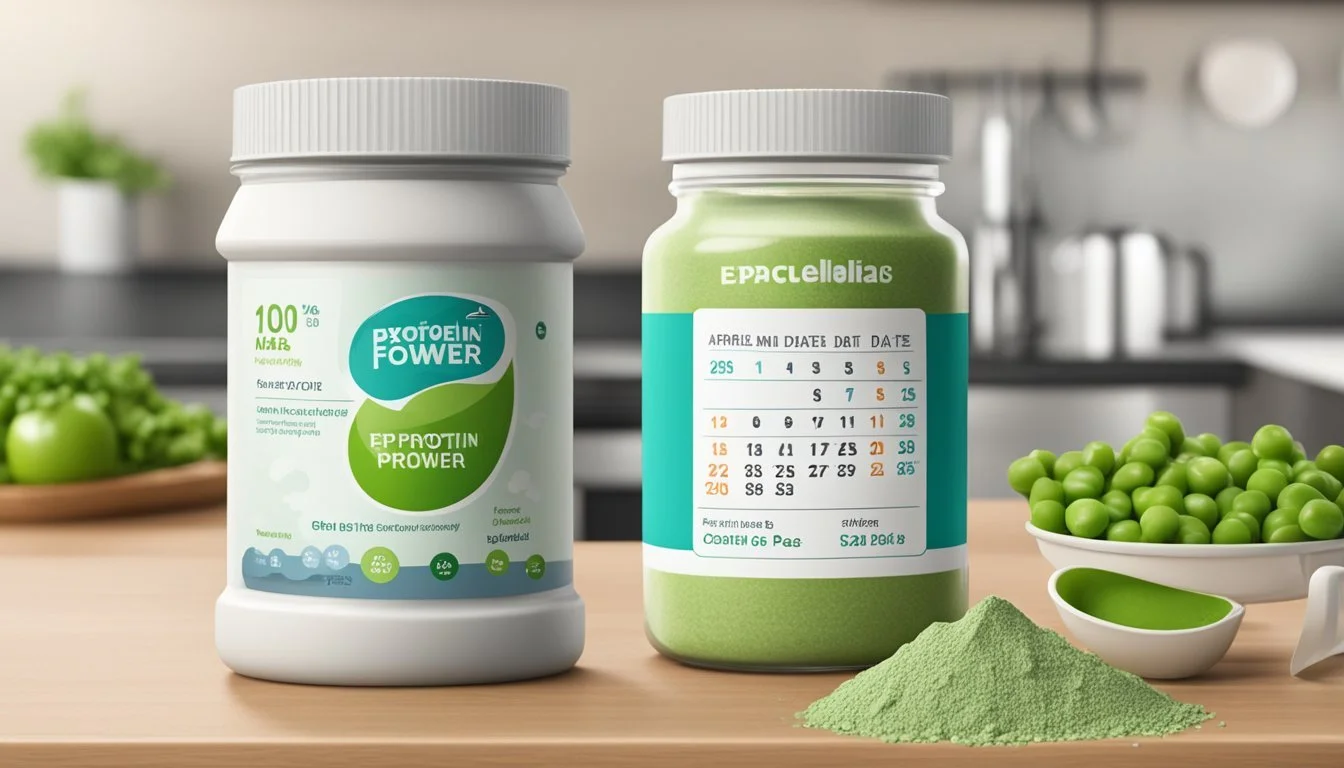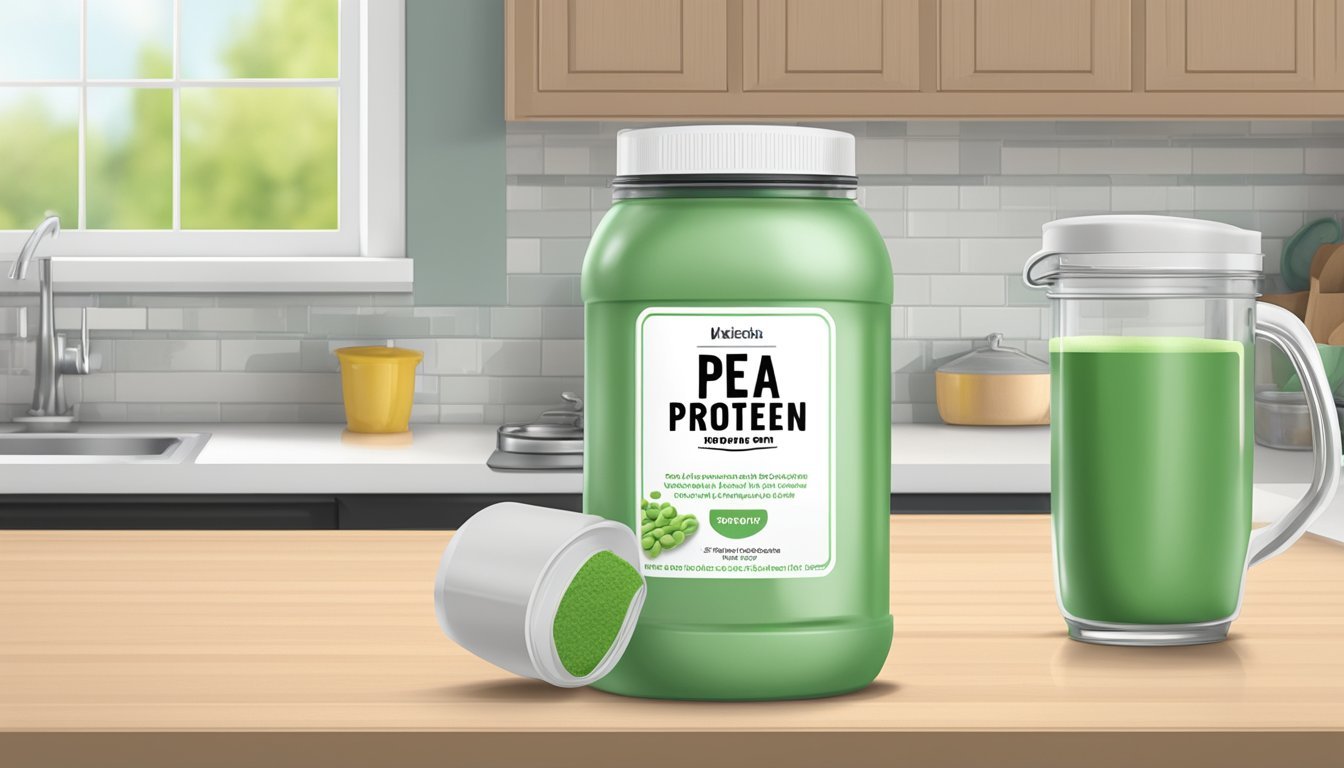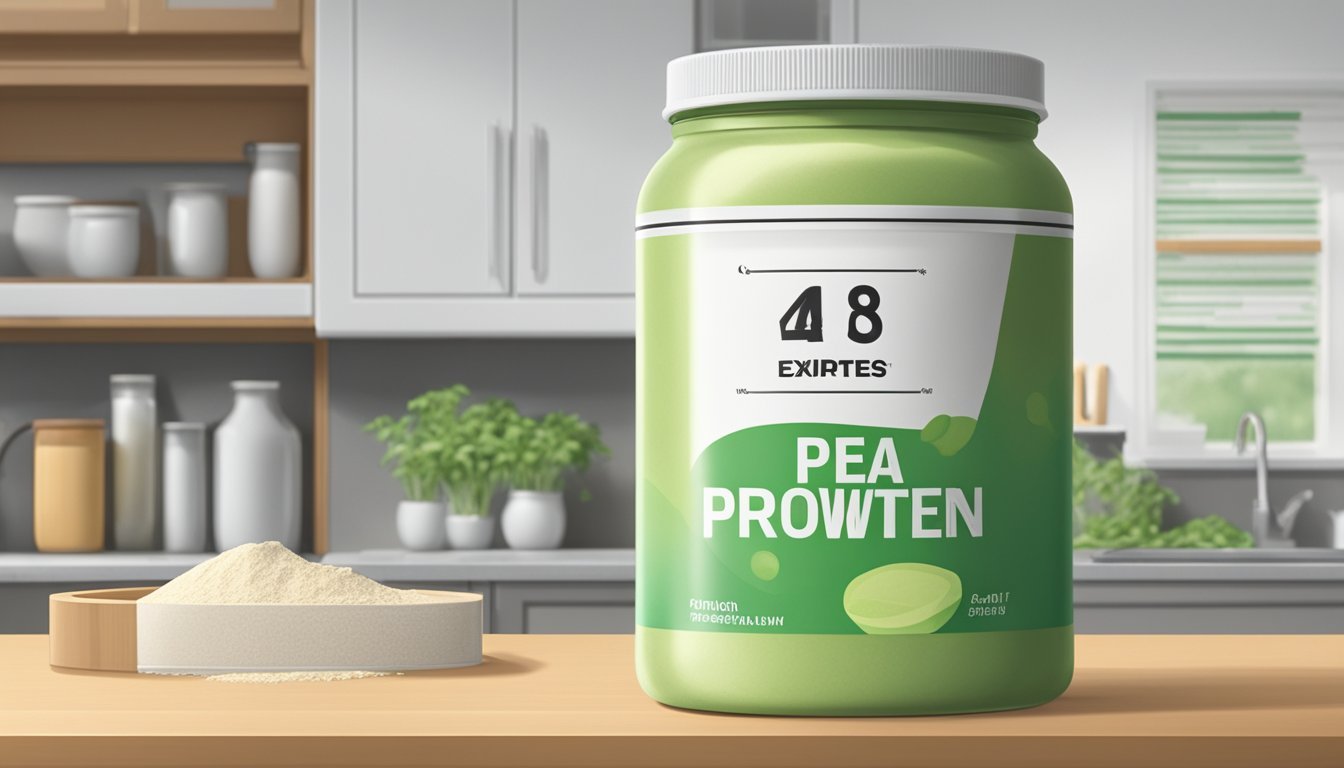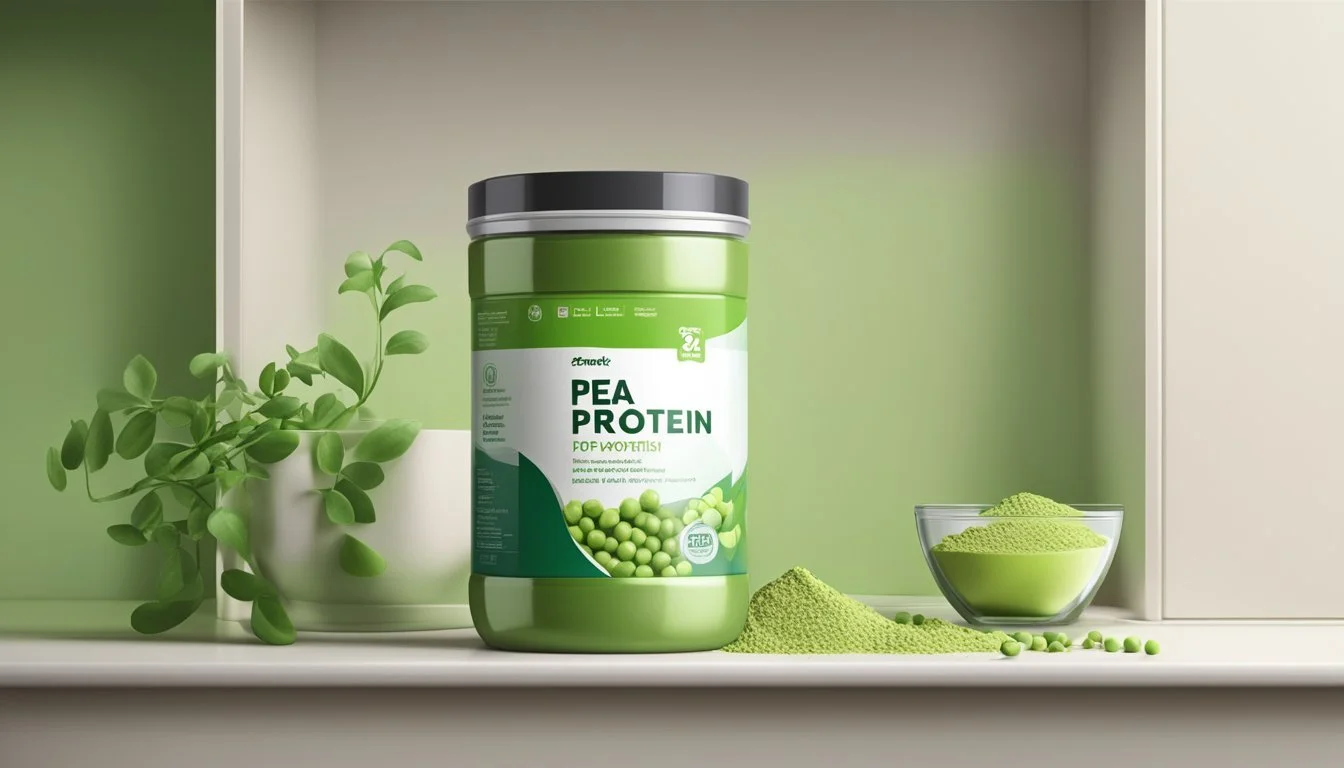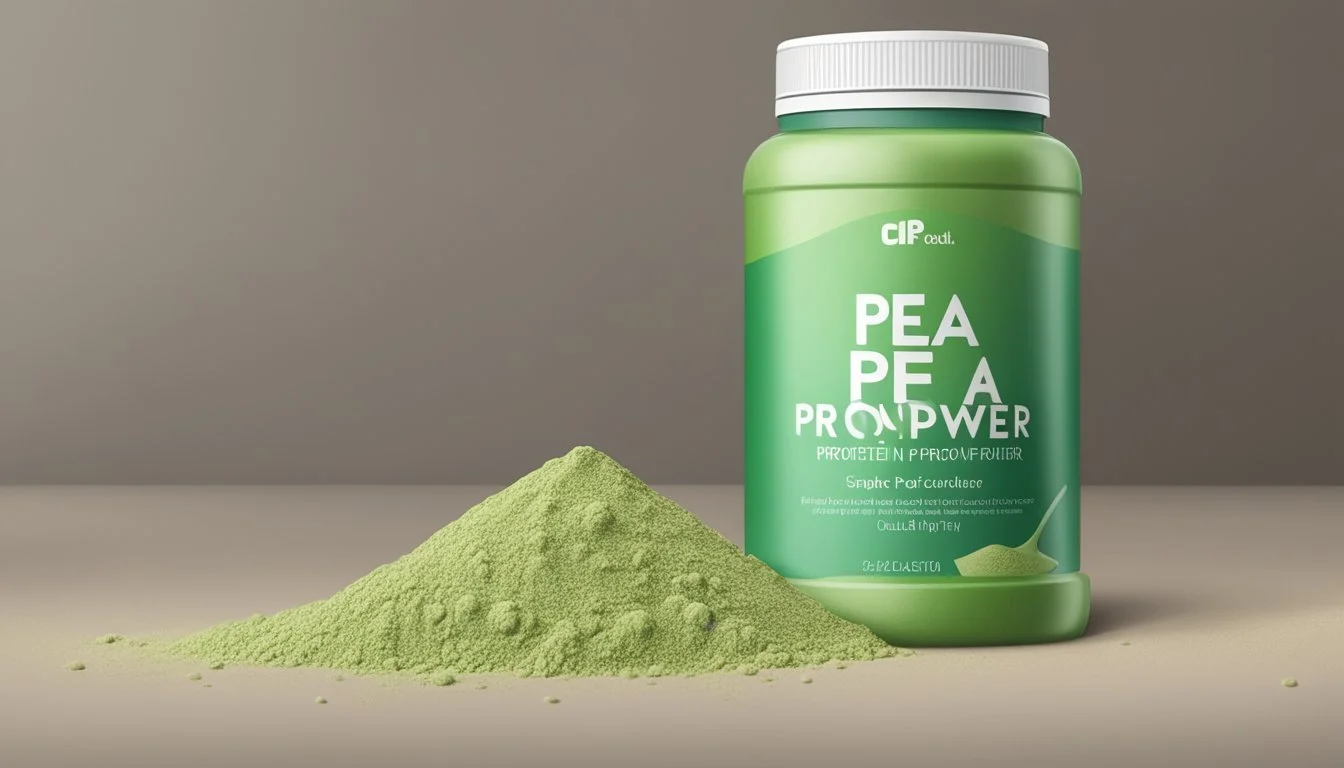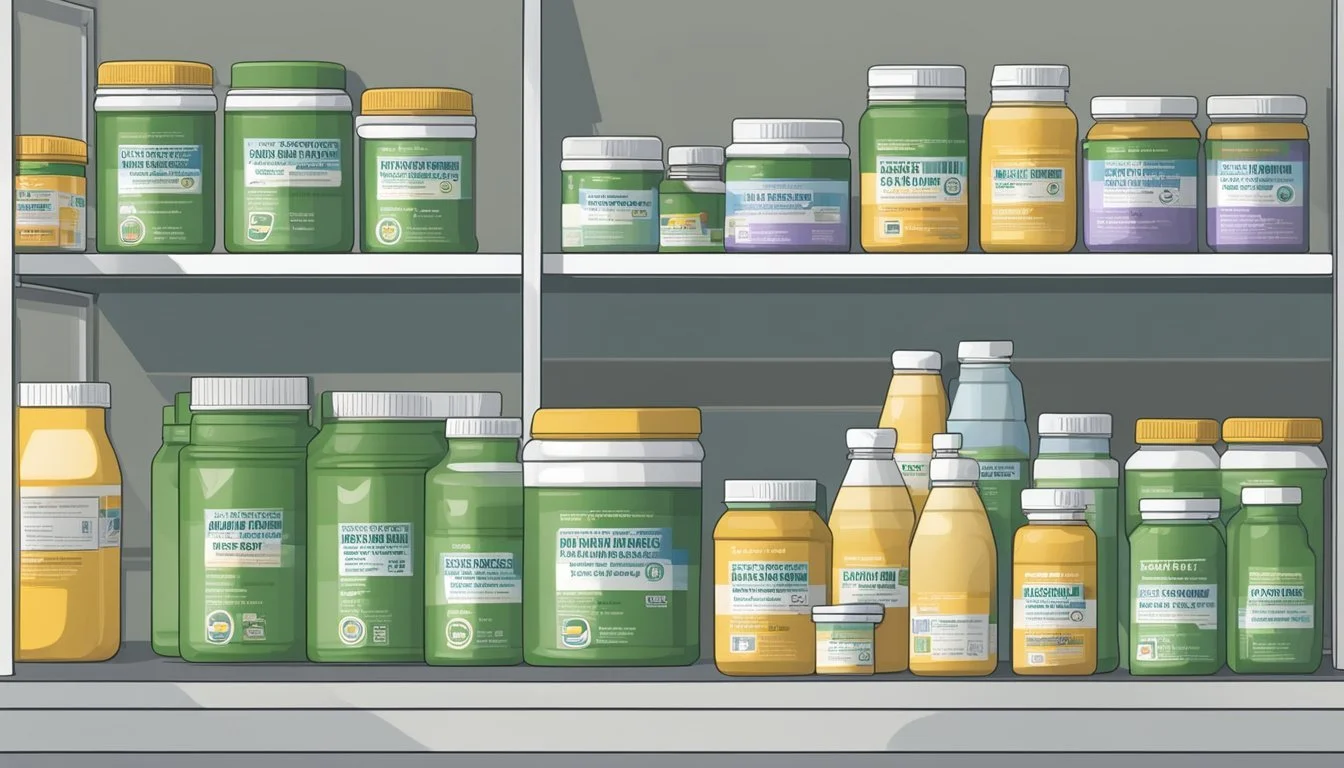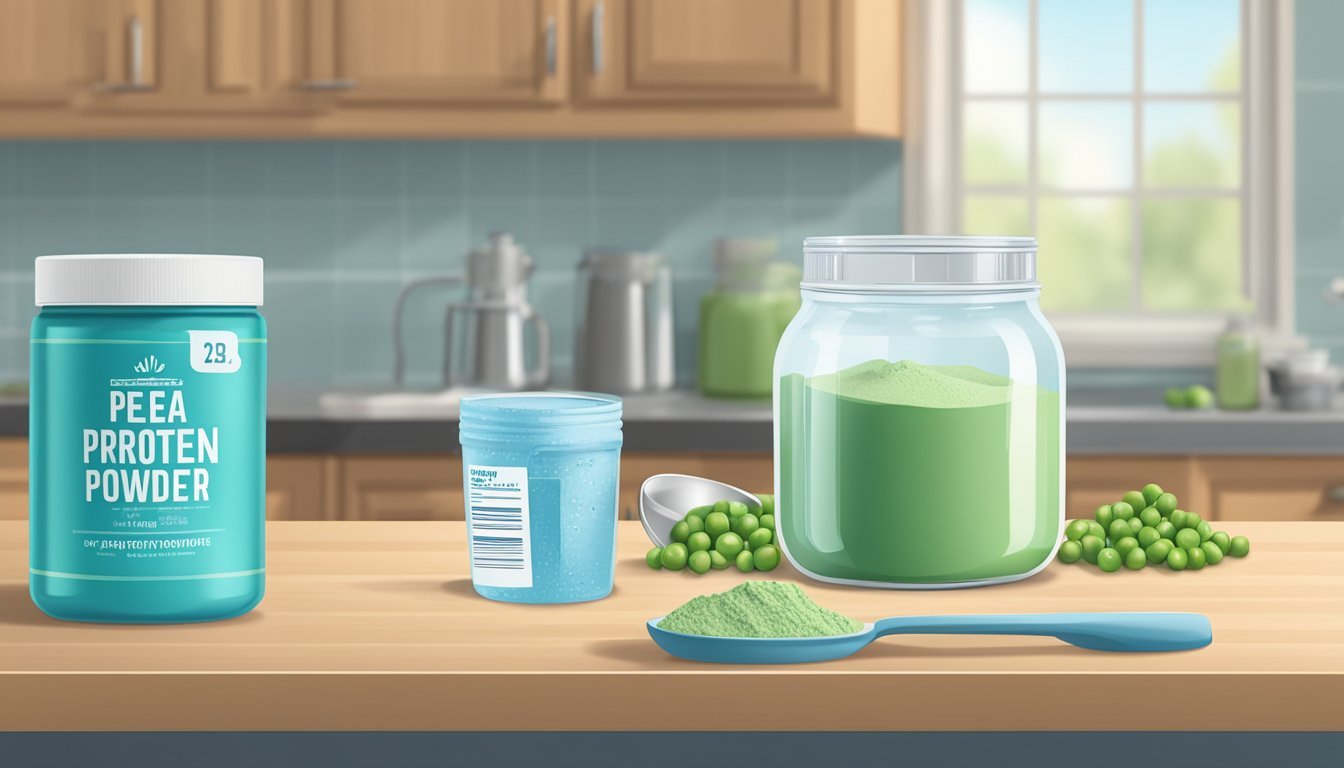How Long Does Pea Protein Powder Last?
Understanding Shelf Life and Storage Tips
Pea protein powder is a popular supplement among both fitness enthusiasts and individuals adhering to plant-based diets. Derived from yellow split peas, this protein-rich supplement offers a significant amount of protein per serving and is often embraced as a vegan-friendly alternative to animal-derived protein sources. As with any dietary supplement, the shelf life of pea protein powder is a point of consideration for consumers wanting to ensure the product's effectiveness and safety.
Generally, protein powder manufacturers, including those producing pea protein, recommend a shelf life of around two years from the date of production. This time frame takes into account preservatives and packaging methods that may extend the product's stability. It's important for users to note the "best by" or expiration dates on the container, which provide a guideline for optimal quality and freshness.
Storage conditions can play a significant role in the longevity of pea protein powder. To maintain its nutritional value and prevent spoilage, it should be stored in a cool, dry place, away from direct sunlight and moisture. While pea protein powder is less prone to bacterial growth than animal-based protein powders, proper storage is still crucial for preserving its quality over time.
Understanding Pea Protein Powder
Pea protein powder is a high-quality, plant-based protein source that's become popular among those seeking alternatives to animal-derived proteins. In this section, we will explore what pea protein is and how it compares to other protein types.
What Is Pea Protein?
Pea protein is derived from yellow split peas and is a favorite choice for vegans and individuals with dietary restrictions. It contains all nine essential amino acids, which are crucial for various bodily functions. Pea protein is especially rich in lysine, but is somewhat lower in methionine. As a plant-based protein, pea protein is also a significant source of iron. The protein's digestibility is notable, with a rate of approximately 94%.
Comparing Pea Protein to Other Protein Types
When compared to other types of protein powders, pea protein offers unique benefits. Unlike many plant-based proteins, pea protein is nearly a complete protein, missing only one of the essential amino acids in significant amounts. Here's how pea protein stacks up against other common protein types:
Protein Type Complete Protein Essential Amino Acids Vegan Other Noteworthy Nutrients Pea Protein Nearly Complete Contains All Nine Yes High in Iron Whey Protein Yes Contains All Nine No High in BCAAs Soy Protein Yes Contains All Nine Yes - Rice Protein No Low in Lysine Yes -
Pea protein stands out due to its compatibility with a vegan diet and for having a high content of branched-chain amino acids (BCAAs) such as leucine, isoleucine, and valine, which are essential for muscle building and repair. It is often compared favorably to whey protein for muscle synthesis due to its high BCAA content.
Assessing Pea Protein Quality
When evaluating pea protein powder, one should consider quality indicators which reflect on both its nutritional quality and potency. Manufacturers and nutritionists often use these indicators to recommend the most effective protein supplements to consumers.
Quality Indicators
Shelf Life: Pea protein powders generally have a shelf life of up to 2 years. Quality can be maintained by storing the powder in a cool, dry place and using an airtight container to shield it from light and moisture.
Manufacturing Practices: The practices implemented by the manufacturer play a critical role in the quality of pea protein powder. One should seek out powders that are produced using good manufacturing processes (GMP), ensuring that the product is consistently produced and controlled according to quality standards.
Nutritional Quality and Potency
Amino Acid Profile: A high-quality pea protein powder contains all nine essential amino acids, making it a complete protein source. The presence of these amino acids is crucial for muscle repair and growth.
Branched-Chain Amino Acids (BCAAs): These are pivotal for muscle synthesis and include leucine, isoleucine, and valine.
Arginine: Abundant in pea protein, arginine supports blood flow and heart health.
Digestibility: A good measure of pea protein's quality is its high digestibility rate of 94%, which means most of the protein is absorbed and utilized by the body, minimizing gut stress.
Nutritional Content: The nutritional potency of pea protein powder can be assessed by its specific content per serving, such as:
Sodium: 230 mg
Iron: 5 mg
Understanding these attributes helps in assessing the overall quality of pea protein powder, ensuring that individuals can make informed choices about their protein supplementation.
Shelf Life and Expiration
When discussing the longevity of pea protein powder, it's crucial to understand the distinctions between the shelf life and various date labels used as indicators of quality and safety.
Understanding Shelf Life
The shelf life of pea protein powder generally spans 1-2 years. This duration reflects the period over which the product should retain its quality and nutritional value when stored appropriately. Proper storage conditions for maintaining the product's integrity include a cool and dry environment, which helps to preserve its shelf stability. The shelf life can be affected by factors such as temperature fluctuations, moisture, and exposure to light.
Deciphering Expiration and Best By Dates
The label of a pea protein powder container is an essential source of information regarding its recommended consumption timeframe. Two critical labels to note are:
Expiration Date: This indicates the last date the manufacturer vouches for the product's peak quality. Post this date; the powder might lose some of its efficacy but is not necessarily unsafe.
Best By Date: This is the manufacturer's estimate of when the powder will be at its best flavor and quality.
It is important not to confuse these terms with a use-by date, which is often treated as a safety cut-off point for perishables. The Food and Drug Administration (FDA) does not require protein powders to have an expiration date, but a best by date is commonly used.
While using the powder slightly after the stated date might not be harmful, it's important to rely on sensory methods: check for off-smells or changes in texture or color to judge if the protein powder is still safe for consumption.
Proper Storage and Handling
Proper storage and handling of pea protein powder are crucial for maintaining its quality and shelf life. Adherence to optimal storage conditions keeps the protein powder fresh and safe for consumption.
Storing Pea Protein Powder
To store pea protein powder correctly, one should place it in an airtight container to prevent exposure to air and moisture. The container must be kept in a cool, dry place, away from direct sunlight and any sources of heat to avoid degradation of the product. It is important to note that refrigeration is generally not advised as it could lead to condensation, which in turn might introduce unwanted moisture into the powder.
Factors Affecting Stability
Several factors can influence the stability and longevity of pea protein powder:
Temperature: High temperatures can speed up the degradation process of protein powders.
Humidity: Excess moisture can cause clumping and potentially create an environment for bacterial growth.
Light: Exposure to light can degrade the powder and reduce its quality.
Packaging: Original packaging is often designed to protect the product from the aforementioned elements. If the original packaging is not resealable, transferring the powder to a stable storage container is imperative.
By controlling these variables, one can ensure the pea protein powder maintains its stability and is usable for the duration of its intended shelf life.
Signs of Spoilage
When assessing pea protein powder for spoilage, one should pay attention to visual, olfactory, and gustatory indicators as these are reliable signs of whether the product has gone bad.
Visual and Texture Changes
Pea protein powder that is beginning to spoil may show visible signs such as discoloration or clumping. If the powder, which typically has a uniform appearance, develops spots of color different from the original, it may indicate spoilage. Clumps in the powder, especially when it has been stored in a dry environment, suggest moisture intrusion, which can facilitate spoilage and the growth of mold.
Odor and Taste Assessment
The smell of pea protein powder is a strong indicator of its condition. A fresh pea protein powder should have a mild, often nutty scent. If the powder develops a rancid smell, it is a clear sign of spoilage. When it comes to taste, any changes in the flavor profile, particularly a sour or bitter taste, indicate that the protein powder has undergone Maillard browning, a reaction that occurs when proteins and sugars react under heat, which can compromise its quality. To avoid consuming spoiled pea protein powder, any changes in odor or taste should be heeded.
Health and Safety Considerations
When dealing with pea protein powder, consumers should be aware of potential allergens and the importance of consulting with health professionals to avoid any adverse effects. This section explores essential safety measures to ensure one's health remains uncompromised while using pea protein supplements.
Addressing Allergens and Intolerances
Pea protein powder is generally considered a safe and allergen-free alternative to common protein supplements like whey or casein, which are dairy-based. However, an individual with a pea allergy should avoid pea protein powder, as it could trigger a serious allergic reaction. Unlike some other plant-based proteins, pea protein is typically gluten-free, which makes it a safe option for those with celiac disease or gluten sensitivities.
Consultation with Health Professionals
Before incorporating pea protein powder or any supplement into one's diet, one should consult a medical professional, especially if there are pre-existing health conditions or concerns. A medical professional can help assess if pea protein is appropriate, considering an individual's unique health profile and nutritional needs. They can also advise on potential side effects and interactions with other medications, ensuring the safe use of pea protein supplements.
Integrating Pea Protein into Your Diet
Pea protein can be an effective dietary supplement for individuals engaging in resistance training or those aiming for weight loss and wellness. It's a versatile ingredient that can be incorporated into a variety of meals and drinks.
Using Pea Protein for Muscle Growth
For bodybuilders and fitness enthusiasts aiming to build muscle mass, pea protein offers an excellent source of protein that is critical for muscle growth and muscle recovery. Due to its high protein content, often around 20-25 grams per serving, it can be a cornerstone of a muscle-building diet. Bodybuilders can add pea protein to their smoothies or shakes as a post-workout drink to aid in the recovery and rebuilding of muscle fibers stressed during resistance training.
Recommended Usage for Muscle Growth:
Post-Workout: One to two scoops (approximately 20-25 grams of protein) mixed into a drink or smoothie immediately following exercise.
Daily: Inclusion of pea protein in meals to ensure consistent intake throughout the day to support ongoing muscle synthesis.
Pea Protein in Weight Loss and Wellness
Individuals focused on weight loss and wellness may find pea protein helpful due to its ability to promote fullness, which can aid in reduced calorie consumption. As a dietary supplement, it can easily be incorporated into a diet plan without the high calories often associated with other protein sources. It's also suitable for those on vegan or vegetarian diets looking for plant-based protein options.
Strategies for Weight Loss and Wellness:
Meal Replacement: A pea protein shake can serve as a low-calorie, nutrient-rich meal substitute.
Snack Alternative: For a quick, healthy snack, pea protein can be blended into a drink to stave off hunger between meals.
By adding pea protein into a diet, it's possible to support both fitness goals such as increased muscle mass and wellness ambitions like weight management.
Exploring Different Types and Uses
In the realm of protein powders, pea protein offers a distinct plant-based alternative to animal-derived sources, catering to various dietary preferences and needs. This section will focus on the different types of protein powders available and how pea protein can be integrated into everyday use.
Varieties of Protein Powders
Protein supplements are diverse and come from multiple sources; each with its unique profile of amino acids, digestion rates, and nutrient content. The main types include:
Pea Protein: A plant-based option high in essential amino acids, particularly rich in arginine.
Whey Protein: Derived from milk and renowned for its fast absorption, whey is a complete protein containing all nine essential amino acids.
Casein Protein: Also milk-based, it digests slowly, making it ideal for a sustained protein release.
Egg Protein: Sourced from eggs, it is a high-quality protein with a good rate of digestibility.
Generally, pea protein has a lower carb content compared to other types like whey, which may contain lactose, a type of sugar.
Creative Ways to Incorporate Pea Protein
Pea protein is versatile, easily digestible, and can be used in several ways:
As a Supplement: It can be mixed into water or non-dairy milk post-workout for muscle recovery.
In Recipes: Use pea protein to boost the protein content in smoothies, pancakes, or baked goods.
By understanding the varieties and leveraging the versatility of pea protein, individuals can effectively tailor their protein intake to match their lifestyle and dietary requirements.
Considering Additives and Nutrient Content
When assessing the shelf life of pea protein powder, both the additives present and its nutrient content play significant roles.
Additives Common in Protein Powders
Protein powders, including those made from peas, often contain additives to enhance shelf life. Common additives include:
Preservatives: Extend the product's freshness by preventing spoilage from microbes.
Flavorings: Artificial or natural flavorings are added to improve taste.
Sweeteners: Such as stevia or sucralose, to improve taste without adding calories.
Emulsifiers: These help maintain texture by keeping ingredients from separating.
These additives can prolong the shelf life of pea protein powder, with many manufacturers citing a lifespan of up to 24 months post-production.
Nutrient Contribution of Pea Protein
Pea protein is a favored alternative for those seeking a plant-based protein source. Its contributions include:
Protein Content: High in essential amino acids, especially branched-chain amino acids (BCAAs), vital for muscle synthesis.
Vitamins and Minerals: Contains important micronutrients like iron.
Fiber: Often retains some of the fiber from the peas, contributing to digestive health.
However, exposure to heat, moisture, or sunlight can degrade these nutrients over time, potentially reducing the product's efficacy. Users are advised to store protein powders in cool, dry places away from direct sunlight to maintain their nutritional value.


